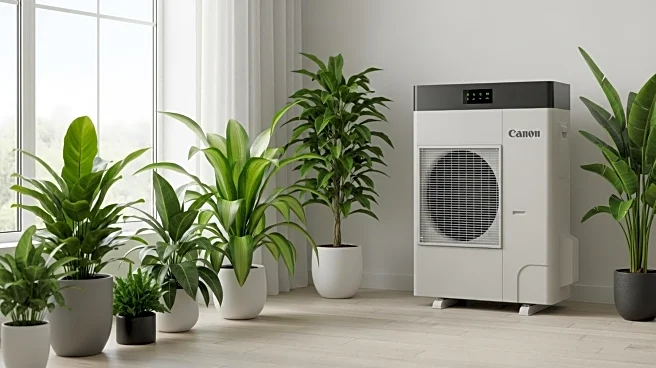What's Happening?
Heat pumps are being highlighted as a sustainable, affordable, and secure method for heating homes, workplaces, and public buildings. According to the International Energy Agency (IEA), heat pumps could reduce global CO2 emissions by 500 million tonnes by 2030. Despite their efficiency, the high initial installation costs remain a barrier for many households. Countries are encouraged to subsidize these installations to meet climate targets. Research indicates that heat pumps are three to four times more efficient than traditional gas boilers, even at temperatures well below freezing. The IEA emphasizes the need for government support to overcome these financial hurdles and achieve broader adoption.
Why It's Important?
The promotion of heat pumps is significant in the context of global efforts to combat climate change. As energy consumption and production contribute to two-thirds of global emissions, transitioning to cleaner energy sources like heat pumps is crucial. The IEA's findings suggest that widespread adoption of heat pumps could significantly reduce emissions from heating buildings, which currently accounts for a substantial portion of global natural gas demand. This shift could also lead to lower heating bills for consumers, provided governments take steps to make electricity cheaper and regulate gas company profits. The initiative aligns with broader climate goals and energy security strategies.
What's Next?
The future of heat pump adoption depends on government actions, such as subsidies and regulatory measures. The US Inflation Reduction Act and bans on new fossil fuel boilers in Europe are examples of policies that could drive increased installations. The IEA reports that trade in heat pumps is expected to grow, with installations set to rise in the coming decades. Nations must deliver on their climate pledges and stated policies to realize the full potential of heat pumps in reducing emissions and enhancing energy efficiency.
Beyond the Headlines
The transition to heat pumps also involves improving building insulation, which can significantly enhance energy efficiency. Data from Denmark shows that well-insulated homes using heat pumps consume 30% less electricity. This highlights the importance of comprehensive energy efficiency strategies that include both technological upgrades and structural improvements. The broader adoption of heat pumps could also stimulate innovation and investment in clean energy technologies, contributing to a more sustainable energy system.










